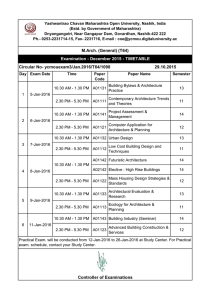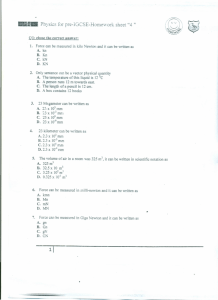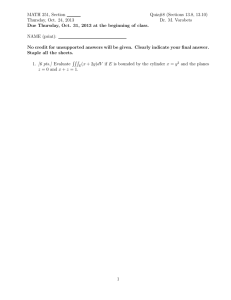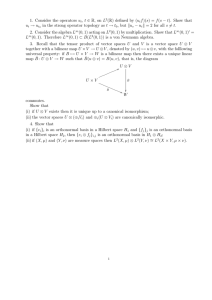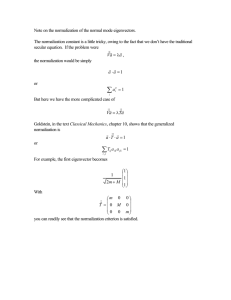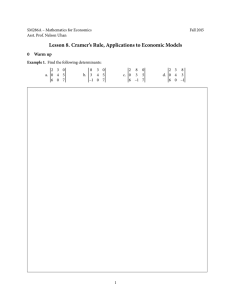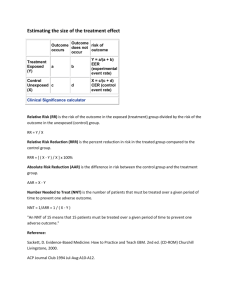Reading, Review, and Recitation (RRR) Week Guidelines
advertisement
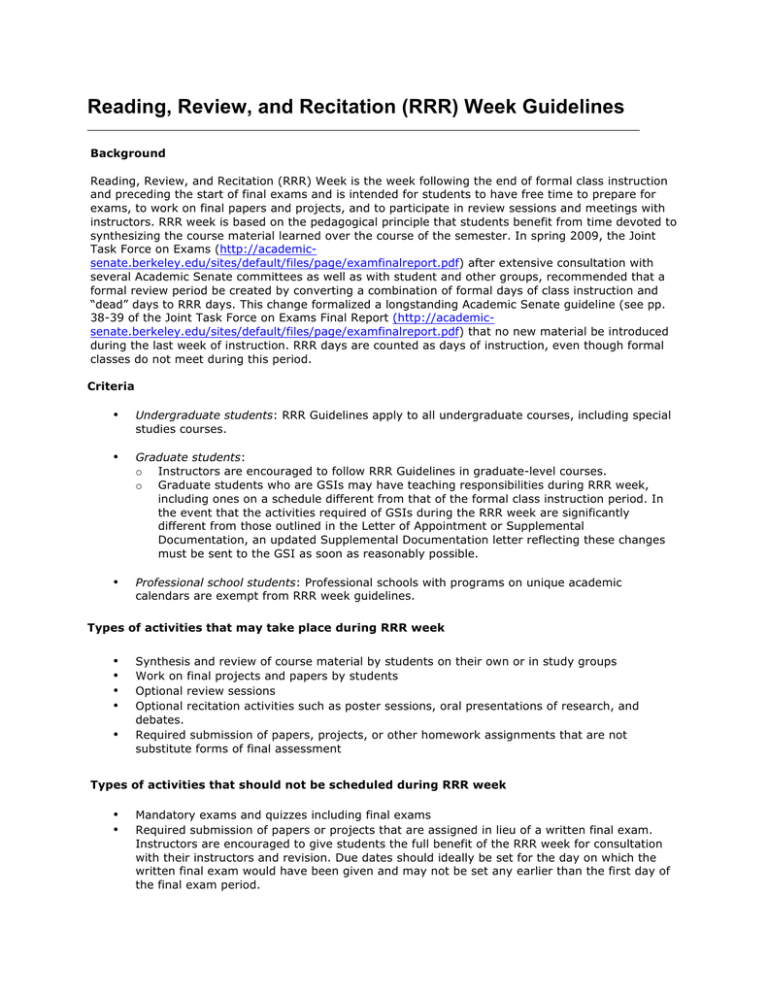
Reading, Review, and Recitation (RRR) Week Guidelines Background Reading, Review, and Recitation (RRR) Week is the week following the end of formal class instruction and preceding the start of final exams and is intended for students to have free time to prepare for exams, to work on final papers and projects, and to participate in review sessions and meetings with instructors. RRR week is based on the pedagogical principle that students benefit from time devoted to synthesizing the course material learned over the course of the semester. In spring 2009, the Joint Task Force on Exams (http://academicsenate.berkeley.edu/sites/default/files/page/examfinalreport.pdf) after extensive consultation with several Academic Senate committees as well as with student and other groups, recommended that a formal review period be created by converting a combination of formal days of class instruction and “dead” days to RRR days. This change formalized a longstanding Academic Senate guideline (see pp. 38-39 of the Joint Task Force on Exams Final Report (http://academicsenate.berkeley.edu/sites/default/files/page/examfinalreport.pdf) that no new material be introduced during the last week of instruction. RRR days are counted as days of instruction, even though formal classes do not meet during this period. Criteria • Undergraduate students: RRR Guidelines apply to all undergraduate courses, including special studies courses. • Graduate students: o Instructors are encouraged to follow RRR Guidelines in graduate-level courses. o Graduate students who are GSIs may have teaching responsibilities during RRR week, including ones on a schedule different from that of the formal class instruction period. In the event that the activities required of GSIs during the RRR week are significantly different from those outlined in the Letter of Appointment or Supplemental Documentation, an updated Supplemental Documentation letter reflecting these changes must be sent to the GSI as soon as reasonably possible. • Professional school students: Professional schools with programs on unique academic calendars are exempt from RRR week guidelines. Types of activities that may take place during RRR week • • • • • Synthesis and review of course material by students on their own or in study groups Work on final projects and papers by students Optional review sessions Optional recitation activities such as poster sessions, oral presentations of research, and debates. Required submission of papers, projects, or other homework assignments that are not substitute forms of final assessment Types of activities that should not be scheduled during RRR week • • Mandatory exams and quizzes including final exams Required submission of papers or projects that are assigned in lieu of a written final exam. Instructors are encouraged to give students the full benefit of the RRR week for consultation with their instructors and revision. Due dates should ideally be set for the day on which the written final exam would have been given and may not be set any earlier than the first day of the final exam period. • Any other mandatory scheduled activities (note exceptions below) Types of activities that may take place during RRR week in certain circumstances • • • • Mandatory recitation activities such as poster sessions, oral presentations of research, and debates, when time and venue constraints make the RRR period the only feasible time to do so. In such cases, instructors should maximize flexibility and scheduling options because students are likely to have other academic commitments during the RRR week. Capstone presentations for “special format” courses, such as performance- or studio-based courses Instructors are encouraged to schedule these activities outside of RRR week whenever possible. However, such courses may need to use the flexible scheduling opportunities presented by the RRR week for mandatory culminating performances, studio critiques, or other types of capstone presentations that count toward students’ final grades, particularly those activities that may require special venues. Make-up classes necessitated by lengthy disruptions such as campus closure (see also COCI’s Guidelines for Single-Incident Disruptions of Classes, http://academicsenate.berkeley.edu/sites/default/files/committees/coci/singleincidentdisruptions.pdf). Note that COCI does not need to approve these exceptions. Noncompliance • In the case of perceived noncompliance in terms of RRR Week or final exams, a student should first communicate with the instructor. The second step is to approach the department chair. Another resource is the Ombuds Office For Students and Postdoctoral Appointees (http://sa.berkeley.edu/ombuds), who provides an informal dispute resolution process and can be contacted at any point, including consultation before talking with the instructor or the department chair. A student may also contact the ASUC Student Advocate’s Office, a student run organization. Resources • • • • • Final Exams: COCI Handbook Section 2.1.3. (http://academicsenate.berkeley.edu/committees/coci/handbook2 - 2-1-3); Office of the Registrar’s Final Exam Responsibilities website (http://registrar.berkeley.edu/finals.html) Midterm Grades: Office of the Registrar’s website (http://registrar.berkeley.edu/Default.aspx?PageID=egrade_midterm.html) Classroom Scheduling: Office of the Registrar’s website (http://registrar.berkeley.edu/Default.aspx?PageID=acad_sched.html) Commencement: Commencement at Cal website (https://commencement.berkeley.edu) These RRR Guidelines are COCI Handbook Section 2.1.12 (http://academicsenate.berkeley.edu/committees/coci/handbook2 - 2-1-12) Approved by COCI 11.15.13
